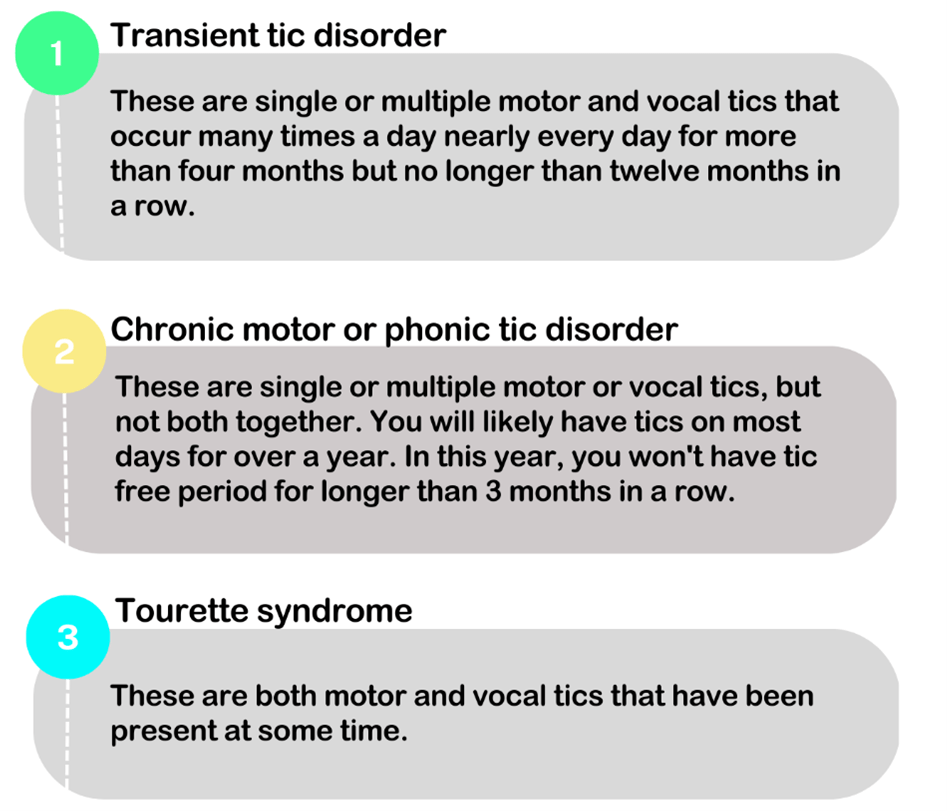Tics: Just The Facts
Tics are fast, repetitive muscle movements resulting in uncontrollable, sudden body jolts
How common are tics?
Tics are common in childhood and at least 5% of children will experience tics at some point in their lives. It is also three times more common for boys to be affected by tics than girls.
What age do tics usually first appear?
Tics first appear at around five years of age but very occasionally they can start later.
Types of tic disorders
It is important to know the difference between the tics and Tourette’s syndrome, but please be aware that they can present differently.
What are the signs and symptoms of tics?
Tics can vary in their presentation and complexity. In most cases, tics do not last, and they resolve on their own.
Simple tics are abrupt and fragmented. Some physical examples can include eye blinking, head jerking, shoulder shrugging and facial grimacing. Examples of sound tics can be throat clearing, sniffing, coughing and tongue clicking.
Complex tics more noticeable than simple tics and usually last longer. Some physical examples can be jumping, touching other people or things, smelling, twirling, and sometimes hitting or biting oneself.
Examples of complex sound tics can be uttering words or phrases out of context, coprolalia (like swear words) and echolalia (repeating a sound word or phrase that has just been heard). If tics are chronic, they are usually worse between 10-12 years of age.
Are tics and Tourette syndrome the same thing?
People often think that tics are the same as Tourette syndrome (a condition which makes people swear or say socially inappropriate words). Although it is true that coprolalia (saying swear words) is a symptom of tics, it only affects minority of people.
In fact, 90% of people who experience tics do not have coprolalia. Try to think of tic disorders as a spectrum to help understand the difference between tics and Tourette syndrome.
What causes tics?
No one knows what causes tics. We do know that a tic is a neurodevelopmental condition; this is because tics seems to develop as the brain is still developing. A lot of research has suggested that there is a strong genetic component in many cases and meaning tics can run in families. But there is not a single gene that causes tics or can be tested to diagnose for tics.
Have you read?
How to get help
If you have any more questions on this area or would like to speak to somebody about this topic, have a look at the links or search for your local services in the blue box below. Alternatively you can always contact your school nurse.

Find help in your local area
Find help in your local area
Find out what services are available to you in your area. Remember your school nurse is always there to give you confidential help and support.




